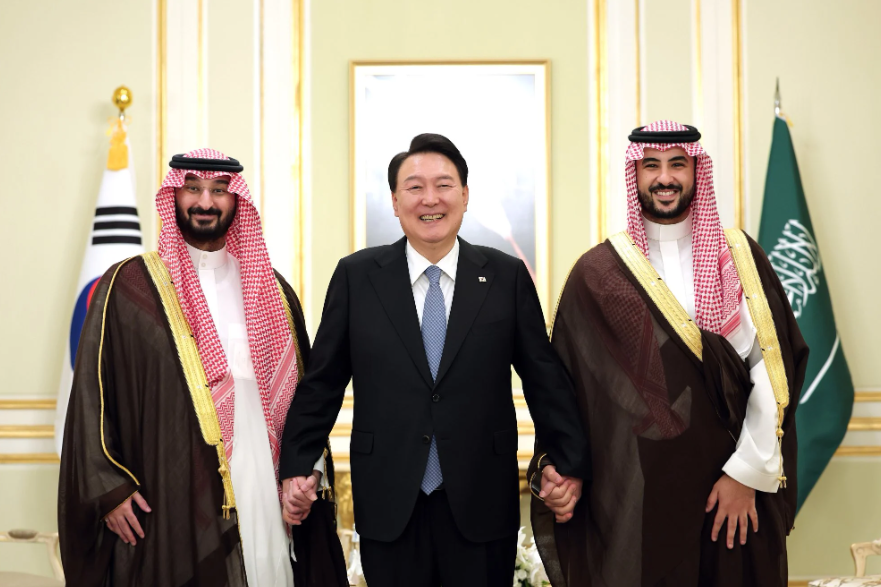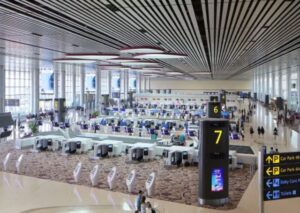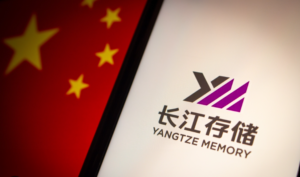In an ambitious move to secure a stronger foothold in the global defense export market, South Korea is eyeing Saudi Arabia as a potential key buyer for its weapons. This strategic endeavor aims to propel South Korea into the ranks of the world’s top four defense exporters, positioning itself alongside the United States, Russia, and France, and overtaking China. The Middle East, with Saudi Arabia at its forefront, presents an attractive market for South Korean weapons exporters, as the Kingdom is actively seeking foreign assistance to bolster its nascent defense industry.
South Korean President Yoon Suk-yeol recently conducted high-level meetings with Saudi officials in Riyadh, underlining the commitment to strengthening defense ties. During this visit, Yoon held discussions with Saudi Arabia’s Defense Minister Khalid bin Salman Al Saud and Minister of National Guard Abdullah bin Bandar bin Abdulaziz Al Saud. These talks, centered on defense cooperation, reflect the burgeoning partnership between the two nations.
Saudi Arabia’s Defense Minister Khalid expressed optimism about the close collaboration between the two countries, hinting that tangible results were on the horizon. He emphasized the importance of establishing a comprehensive partnership that includes technological collaboration and joint production.
President Yoon reciprocated the sentiment, expressing South Korea’s desire to contribute to Saudi Arabia’s defense reforms and deepen ties through various avenues, including defense training, joint exercises, visits to military bases, and people-to-people exchanges.
South Korea, currently ranked as the world’s ninth-largest defense exporter, aims to ascend to a higher position in the global defense market by 2027. This ambitious goal is part of South Korea’s “Blue Ocean” strategy in bilateral trade, building upon their past successes in the Middle East. South Korean companies’ involvement in Saudi Arabia’s construction boom during the 1970s and 1980s played a pivotal role in accelerating South Korea’s economic expansion during that period.
The “Blue Ocean” strategy involves capturing untapped markets with few or no competitors. Discussions on large-scale defense industry cooperation between South Korea and Saudi Arabia are in the final stages, encompassing areas such as anti-aircraft defense systems and firearms. The long-term nature of these discussions indicates that their defense cooperation could extend to weapons supply, maintenance, and training.
South Korean officials are optimistic about Saudi Arabia serving as a “springboard” for their defense industry to expand its presence in the Middle East. They have set an ambitious target of $20 billion in defense exports this year after achieving a record $17.3 billion in arms sales last year, including tanks, howitzers, warplanes, and rockets.
While the specific details of the weapons to be exported remain undisclosed due to sensitivity, it is clear that Saudi Arabia is also interested in the transfer of defense technology. South Korea’s willingness to cooperate in this realm places it in a favorable position as a potential partner.
One of the technologies Saudi Arabia is keen to acquire is an updated version of South Korea’s aerial and missile defense system known as Cheongung II. This system holds significant potential for deployment against the threat of ballistic missiles and drone attacks, such as those posed by Houthi rebels in neighboring Yemen. When Saudi Crown Prince Mohammad bin Salman visited Seoul last year, he reportedly expressed great interest in this system, known as the Korean version of the American Patriot missiles. South Korea had previously secured a $3.5 billion deal to export the system to the United Arab Emirates.
Additionally, Saudi Arabia is in need of replacing its aging infantry-based weapons, including tanks, armored vehicles, self-propelled guns, and artillery pieces. South Korea, with its robust defense industry, is well-positioned to meet these requirements.
However, South Korea faces stiff competition in the form of China’s burgeoning defense industry, which is also vying for a slice of the lucrative Saudi Arabian market. This competition underscores the intensity of the global arms trade, transforming what may seem like a “Blue Ocean” into a “Red Ocean” of competition for South Korea.
The coming years will likely witness intense diplomacy, negotiations, and strategic partnerships as South Korea strives to secure its position among the world’s leading defense exporters while assisting Saudi Arabia in building a robust defense industry.
(Source: Park Chan-kyong | South China Morning Post | Yonhap News Agency)









